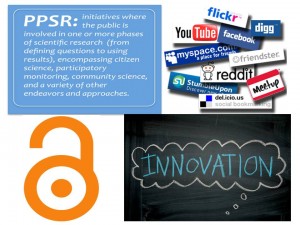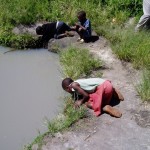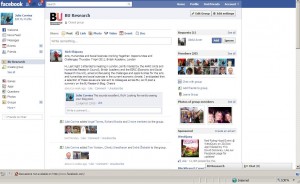 Back in August, Susan added a post to the Blog on using Twitter (Get tweeing: how to make an impact with Twitter) which listed a number of excellent tips for using Twitter to make an impact in academia. Following on from this, the LSE’s Impact of Social Sciences Blog has listed a number of things you can do when using Twitter to promote your research.
Back in August, Susan added a post to the Blog on using Twitter (Get tweeing: how to make an impact with Twitter) which listed a number of excellent tips for using Twitter to make an impact in academia. Following on from this, the LSE’s Impact of Social Sciences Blog has listed a number of things you can do when using Twitter to promote your research.
1. Tweet about each new publication, website update or new blog that the project completes. To gauge feedback, you could send a tweet that links to your research blog and ask your followers for their feedback and comments.
2. For tweeting to work well, always make sure that an open-web full version or summary of every publication, conference presentation or talk at an event is available online. Summarize every article published in closed-web journal on a blog, or lodge a full-text version or an extended summary on BURO, our institutional repository. In addition, sites like www.scribd.com are useful for depositing open web versions.
3. Tweet about new developments of interest from the project’s point of view, for instance, relevant government policy changes, think tank reports, or journal articles.
4. Use hashtags (#) to make your materials more visible – e.g. #phdchat. Don’t be afraid to start your own.
5. Use your tweets to cover developments at other related research sites, retweeting interesting new material that they produce. This may appear to some as ‘helping the competition’, but in most research areas the key problem is to get more attention for the area as a whole. Building up a Twitter network of reciprocating research projects can help everyone to keep up to date more easily, improve the standard and pace of debate, and so attract more attention (and funding) into the research area.
![]() 6. Twitter provides many opportunities for ‘crowd sourcing’ research activities across the sciences, social sciences, history and literature – by getting people to help with gathering information, making observations, undertaking data analysis, transcribing and editing documents – all done just for the love of it. Some researchers have also used Twitter to help ‘crowdsource’ research funding from interested public bodies.
6. Twitter provides many opportunities for ‘crowd sourcing’ research activities across the sciences, social sciences, history and literature – by getting people to help with gathering information, making observations, undertaking data analysis, transcribing and editing documents – all done just for the love of it. Some researchers have also used Twitter to help ‘crowdsource’ research funding from interested public bodies.
7. Reaching out to external audiences is something that Twitter is exceptionally good for. Making links with practitioners in business, government, and public policy can happen easily. Twitter’s brevity, accessibility and immediacy are all very appealing to non-academics. At the end of each month, Twitter can be used as a painless metric to assess how your tweeting is working for you and your project.
8. Showing the growth in your followers and the number of people who read your research blog can also be helpful for funding applications. You could make short notes on the following:
• The number of followers you have
• The names of those who could be useful for future collaboration
• Invitations to write blog posts or speak at events, which have come via Twitter
• Number of hits to your own blog posts via Twitter
 For more tips on academic tweeting, download this short guide to using Twitter in university research, teaching, and impact activities – Top Twitter Tips for Academics
For more tips on academic tweeting, download this short guide to using Twitter in university research, teaching, and impact activities – Top Twitter Tips for Academics


 The eTourism Lab,
The eTourism Lab,  While there is agreement that charities nowadays have a greater need for marketing, there is little agreement on how they should be approaching marketing and especially when it comes to the adoption of Social Media; research has shown that they are lagging behind as they are waiting to see how others use this new technology. Today, charities of any size can take advantage of Social Media tools to showcase their organisation to the world without relying on huge budgets. Money is no longer the decision factor, creativity is. Getting a head start and expanding your Instagram presence buy choosing to
While there is agreement that charities nowadays have a greater need for marketing, there is little agreement on how they should be approaching marketing and especially when it comes to the adoption of Social Media; research has shown that they are lagging behind as they are waiting to see how others use this new technology. Today, charities of any size can take advantage of Social Media tools to showcase their organisation to the world without relying on huge budgets. Money is no longer the decision factor, creativity is. Getting a head start and expanding your Instagram presence buy choosing to  Little research has actually been carried out on marketing from a non-profitable organisation’s point of view. Bournemouth University is experimenting with Internet and Social Media to try and classify a best practice for charities to help them engage and create awareness about the problem and how people can help make a change. Facebook and Twitter are primarily used to raise awareness and create story telling. As relationships are the foundation for Social Media sites they are key for charities in order to engage further with their stakeholders. So far our attempts have been successful and we have found that followers are engaging with us through Social Media and we are now looking into ways of raising money through the various platforms to help fund new projects around the world. Using social media strategically will be critical for organisations of the future and the expertise of the eTourism Lab will be widely used for all organisations engaging.
Little research has actually been carried out on marketing from a non-profitable organisation’s point of view. Bournemouth University is experimenting with Internet and Social Media to try and classify a best practice for charities to help them engage and create awareness about the problem and how people can help make a change. Facebook and Twitter are primarily used to raise awareness and create story telling. As relationships are the foundation for Social Media sites they are key for charities in order to engage further with their stakeholders. So far our attempts have been successful and we have found that followers are engaging with us through Social Media and we are now looking into ways of raising money through the various platforms to help fund new projects around the world. Using social media strategically will be critical for organisations of the future and the expertise of the eTourism Lab will be widely used for all organisations engaging.

 BU has recently set up the
BU has recently set up the  Social Media: A guide for researchers
Social Media: A guide for researchers











 BU attendance at third annual GCPHR meeting in June
BU attendance at third annual GCPHR meeting in June Interactive Tangible and Intangible Heritage Applications – BU student work featured in new book chapter
Interactive Tangible and Intangible Heritage Applications – BU student work featured in new book chapter Second NIHR MIHERC meeting in Bournemouth this week
Second NIHR MIHERC meeting in Bournemouth this week MSCA Postdoctoral Fellowships 2025 Call
MSCA Postdoctoral Fellowships 2025 Call ERC Advanced Grant 2025 Webinar
ERC Advanced Grant 2025 Webinar Horizon Europe Work Programme 2025 Published
Horizon Europe Work Programme 2025 Published Horizon Europe 2025 Work Programme pre-Published
Horizon Europe 2025 Work Programme pre-Published Update on UKRO services
Update on UKRO services European research project exploring use of ‘virtual twins’ to better manage metabolic associated fatty liver disease
European research project exploring use of ‘virtual twins’ to better manage metabolic associated fatty liver disease